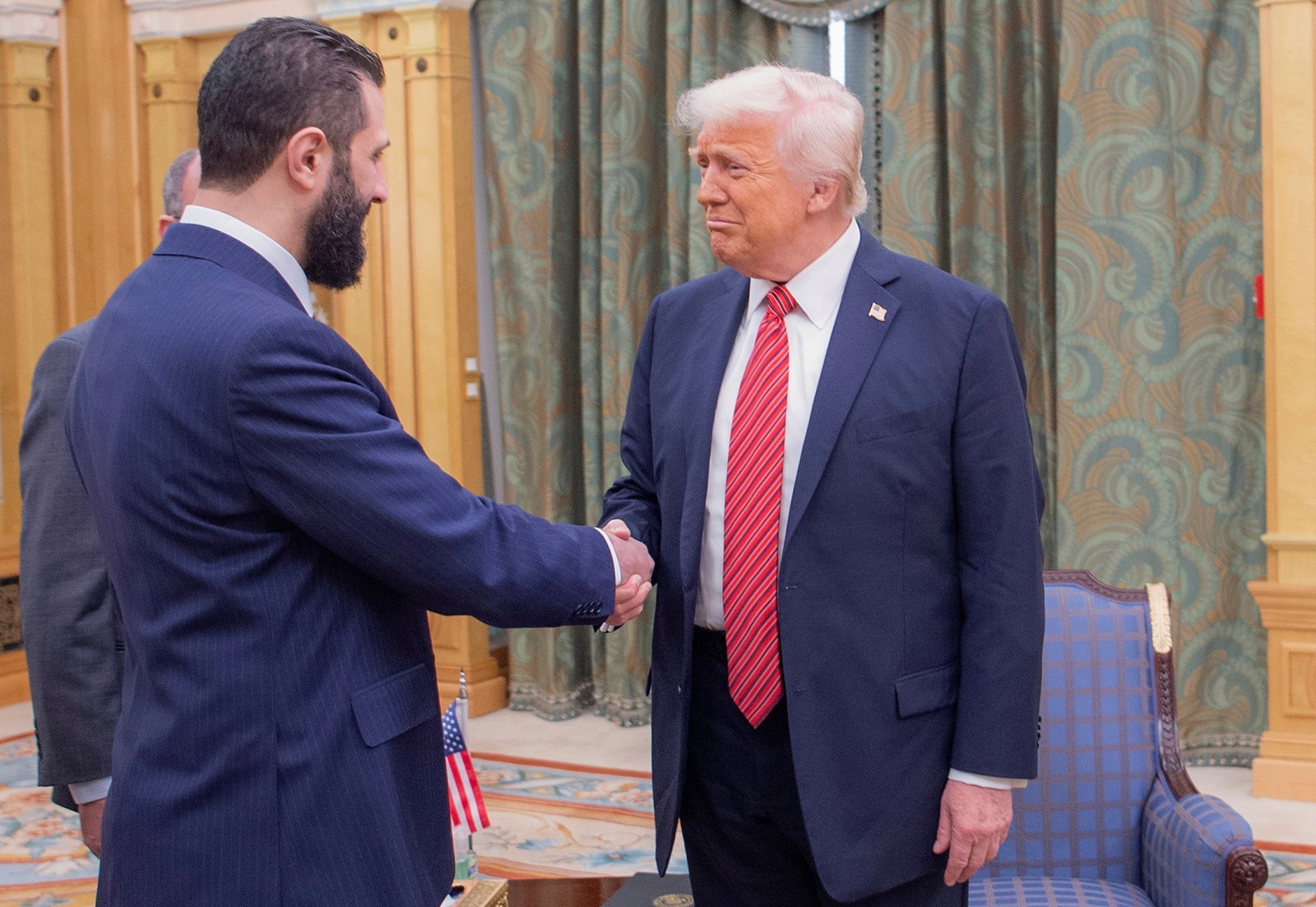
RIYADH, Saudi Arabia — President Donald Trump, swiftly dismantling decades of U.S. government policy that treated Syria like a pariah, held an extraordinary meeting Wednesday with its president, Ahmad al-Sharaa, the former leader of a rebel group designated as a terrorist organization by the U.S. government.
The meeting, held in Riyadh, Saudi Arabia, at the urging of Crown Prince Mohammed bin Salman, occurred a day after Trump announced that he was lifting sweeping sanctions against Syria, which Washington began imposing in 1979.
Trump, who has been known to assess people according to how they look, suggested that al-Sharaa, a rugged figure with a thick black beard who toppled the brutal Assad dynasty in December, had made a favorable impression.
“Young, attractive guy,” Trump described him to the news media. “Tough guy. Strong past. Very strong past. Fighter.”
“He’s got a real shot at pulling it together,” Trump said of Syria, adding, “It’s a torn-up country.”
The last meeting between the leaders of both countries occurred 25 years ago.
Trump spoke as he flew to Qatar, the second stop on his four-day, three-nation Middle East tour that will take him next to the United Arab Emirates. The Qataris, like the Saudis, greeted Trump with pomp, including an honor guard mounted on camels for his presidential motorcade.
Much of the trip is focused on business deals, including the $142 billion sale of armaments to Saudi Arabia and an agreement to sell 160 Boeing passenger aircraft to Qatar. The White House said Tuesday that the president had secured $600 billion in deals with the Saudi government and firms. But the details were vague, and some of the deals announced as new had already been in the works.
Even as Trump trumpeted the deals, several issues — the violence plaguing the Middle East, including the war in the Gaza Strip; the unstable situation in Syria; and a possible deal with Iran over its nuclear weapon development program — were lurking in the background.
The lifting of sanctions would be a lifeline for Syria. After nearly 14 years of civil war, the country is physically and economically devastated, and harsh sanctions were imposed after the former president, Bashar Assad, carried out a violent crackdown against a democratic uprising in 2011. That led to a civil war that killed more than 600,000 people and displaced about 13 million, according to United Nations estimates. The sanctions had blocked most aid, including that needed for reconstruction.
“The sanctions were really crippling,” Trump said in remarks to Arab Gulf leaders who had gathered to meet with him Wednesday. He was working to normalize relations with Syria, he said, adding, “I feel very strongly that this would give them a chance.”
Both Crown Prince Mohammed and Turkish President Recep Tayyip Erdogan, which backed the insurgency that brought al-Sharaa to power, had urged Trump to lift the sanctions. Erdogan, who joined the 30-minute meeting with the Syrian leader by phone, and the Saudi crown prince, who attended in person, praised the decision. The crown prince called it “courageous,” according to a summary provided by the White House.
The U.S. mechanism for lifting the sanctions on Syria was not immediately clear, since some of them were imposed by Congress. Still, it was a remarkable shift for Trump, who had disparaged Syria as nothing but “sand and death” during his first term as president.
He had also expressed deep skepticism regarding the long-standing deployment of U.S. forces in the country. A contingent of about 2,000 American troops placed in northeastern Syria, mainly to prevent the resurrection of the Islamic State group, will be reduced to around 1,400, U.S. officials have said.


 PREVIOUS ARTICLE
PREVIOUS ARTICLE
